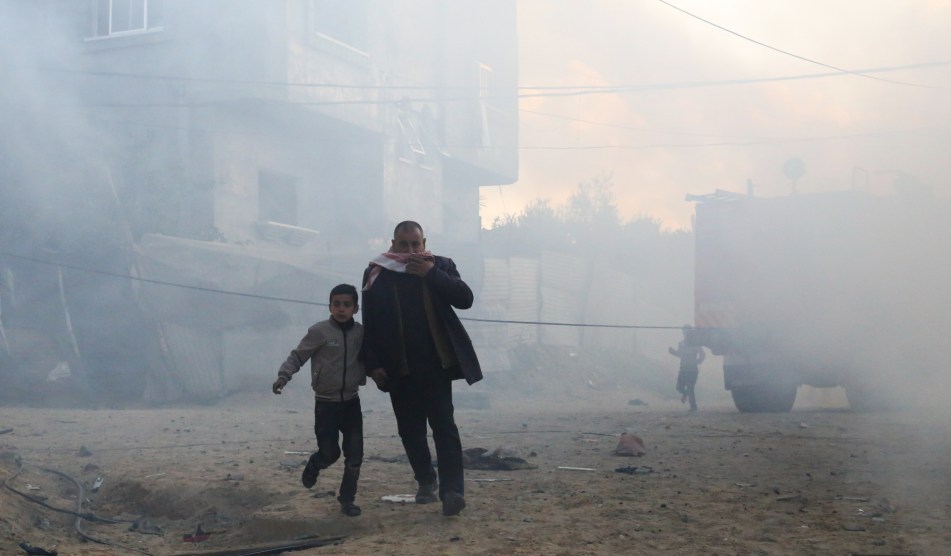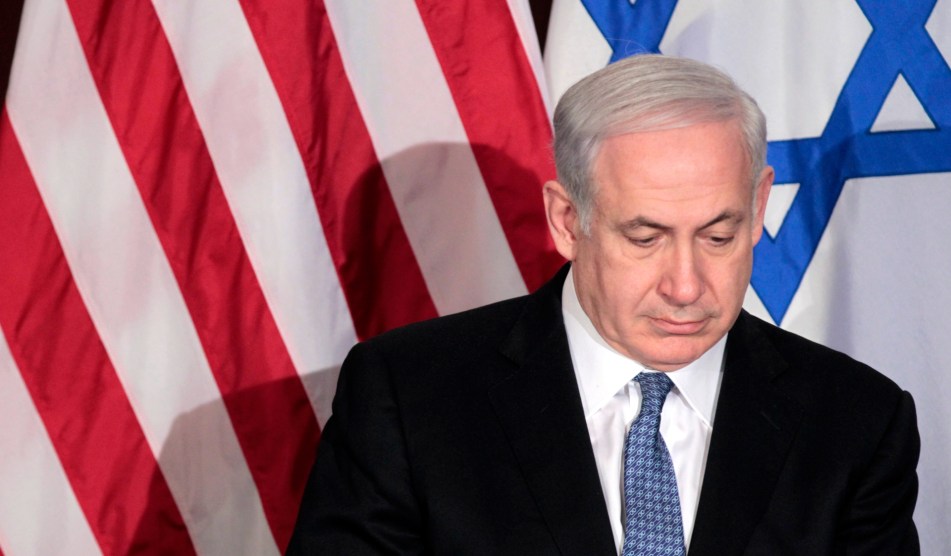
Two people run amid smoke in Rafah on February 19th, 2024.Hatem Ali/AP
After being the only member of the UN Security Council to twice veto resolutions calling for a ceasefire in the Israel-Hamas war, the Biden administration is preparing a ceasefire proposal of its own.
Al Jazeera on Monday reported that the US-authored resolution would fall considerably short of what many critics of Israeli and American policy have demanded—and would call only for a “temporary ceasefire” rather than a permanent end to the fighting—but it nonetheless shows the Biden administration moving more publicly to pressure Israel to wind down the conflict. Both Al Jazeera and the New York Times reported that the measure would also call for Israel not to invade Rafah, a southern city in Gaza, and that it would require, as the Times wrote, “successful negotiations to release all hostages and the lifting of all barriers to the distribution of humanitarian assistance in Gaza.”
If the reports are correct, the US resolution would represent a significant change in language—the Biden administration had adamantly avoided the term “ceasefire” since the start of the conflict, which began with the October 7 Hamas attack in which 1,200 people were killed in Israel. Perhaps more importantly, it is one of the starkest indications yet of the US’s growing frustrations with Prime Minister Benjamin Netanyahu, as Israel prepares a ground assault on Rafah that has drawn fierce international criticism. The potential invasion of Rafah, according to an expert we spoke with, had seemingly rendered “meaningless” the Biden administration’s claims that it was successfully working behind the scenes to restrain Israel.
Still, the Biden administration’s resolution is far from a reversal of the staunch US backing of Israel in a war in which the US ally has killed more than 29,000 Palestinians and leveled Gaza to such a degree it has become a “moonscape of war.” The US resolution calling for a ceasefire comes as the Biden administration vetoes a competing UN ceasefire proposal drafted by Algeria slated to be discussed Tuesday. Among other provisions, Algeria’s resolution would have demanded, according to the Associated Press, that both Israel and Hamas “scrupulously comply” with international law.
But the ceasefire resolution from Algeria, the US has claimed, would have hampered current negotiations between Israel and Hamas. As we previously reported, Netanyahu had called a recent ceasefire proposal from Hamas “delusional” and had said the war would not stop until there is “complete victory.” Last week, in part to appease the right-wing factions of his government, Netanyahu withdrew from peace talks scheduled to take place in Cairo, Egypt.
Update, February 20: This post has been updated to reflect the United States vetoing Algeria’s ceasefire proposal.

















